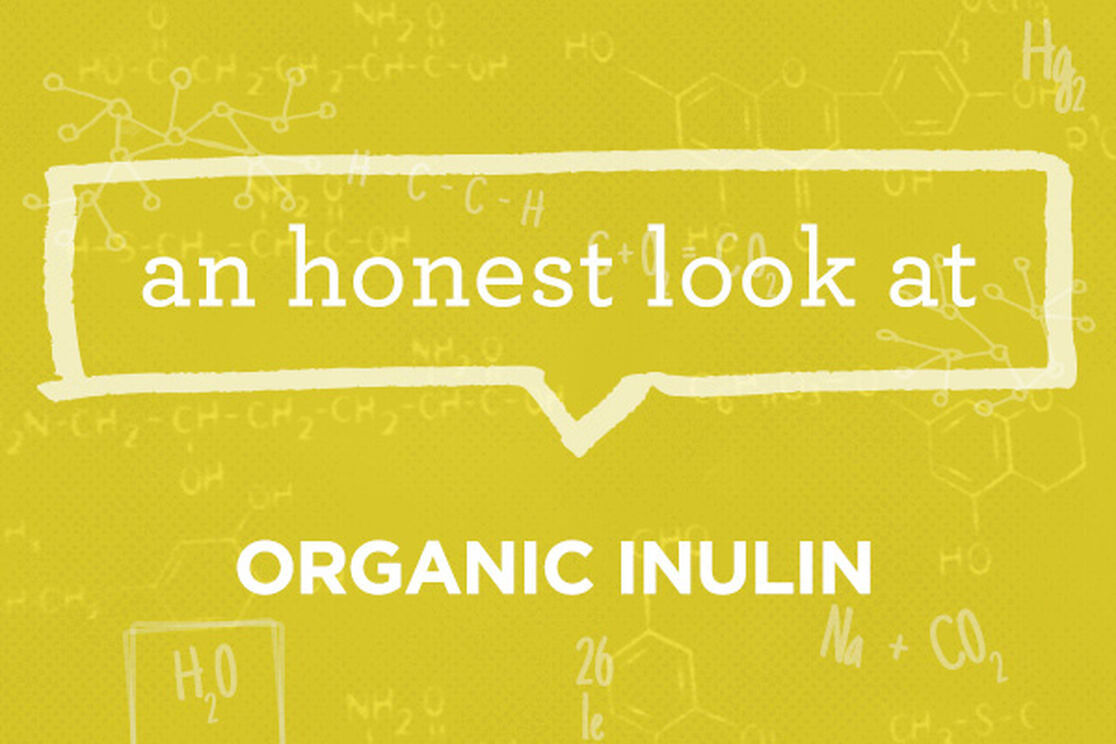This is part of our ongoing series helping consumers better understand chemicals, chemistry, and product formulations. We translate the science, bust the myths, and give you an honest assessment, so you can make informed choices for your family!
Ingredient: Organic Inulin
What it is: Inulin is a naturally occurring fructo-polysaccharide (a type of carbohydrate molecule) produced by more than 36,000 species of of plants. Honest uses inulin from organic Jerusalem artichokes, as well as organic agave.
What it does: Acting as a prebiotic, inulin stays intact through the upper digestive system and makes its way to the large intestine to stimulate the production of microbiota in the colon and gastrointestinal tract. Translation: it’s like food for the beneficial bacteria already living in your gut, but it also helps reduce the number of harmful species. (Note: Prebiotics are not the same as probiotics, which are live bacteria used in foods or supplements that add to the bacterial ecosystem in your gut.)
By feeding your friendly intestinal bacteria, inulin helps:
- Support good colon health.
- Regulate appetite and lipid (fat) metabolism.
- Reduce the risk of gastroenteritis (stomach flu) and infections.
- Reduce the incidence of allergic symptoms such as atopic eczema.
- Enhance calcium and magnesium absorption.
Why we use it: We chose to include Organic Inulin in some of our Health & Wellness supplements to give them an extra boost of natural goodness that enhances intestinal health and general well-being.
Have any other questions about organic inulin or our supplements? Let us know in the comments. We’re always happy to help!
References:
- López-Molina, D., Navarro-Martínez, M. D., Rojas-Melgarejo, F., Hiner, A. N., Chazarra, S., & Rodríguez-López, J. N. (2005). Molecular properties and prebiotic effect of inulin obtained from artichoke (Cynara scolymus L.). Phytochemistry, 66(12), 1476-1484.
- Niness, K. R. (1999). Inulin and oligofructose: what are they?. The Journal of nutrition, 129(7), 1402S-1406s.
- Ramnani, P., Gaudier, E., Bingham, M., Van Bruggen, P., Tuohy, K. M., & Gibson, G. R. (2010). Prebiotic effect of fruit and vegetable shots containing Jerusalem artichoke inulin: a human intervention study. Br J Nutr, 104, 233-240.
- Roberfroid, M. B. (2007). Inulin-type fructans: functional food ingredients. The Journal of nutrition, 137(11), 2493S-2502S.
- Roberfroid, M., Gibson, G. R., Hoyles, L., McCartney, A. L., Rastall, R., Rowland, I., ... & Meheust, A. (2010). Prebiotic effects: metabolic and health benefits. British Journal of Nutrition, 104(S2), S1-S63.
We aim to provide you with the most honest and credible information possible. This article was reviewed for accuracy by The Honest Team and was written based on sources that are linked at the bottom of the article.
blog_review_statement



